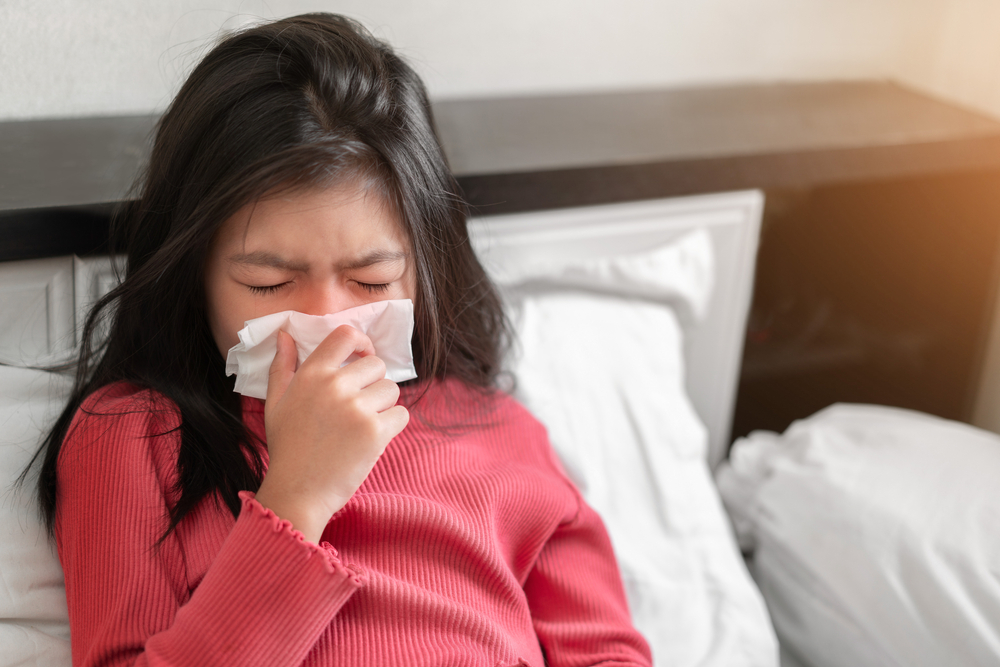An Ultimate Guide to Childhood Colds: Symptoms, Causes, Prevention, and Treatment

Childhood colds are a widespread occurrence by a viral infection in the nose and throat region. It is estimated that children can have up to 8 colds per year. While a cold can be a minor inconvenience, knowing common cold symptoms and proper treatment is crucial to ensure a quick recovery. This guide provides comprehensive information on children and colds, including their symptoms, causes, prevention, and treatments.
Symptoms of a Cold in Children
Colds in children can be accompanied by a range of symptoms, including:
- Runny or stuffy nose
- Sneezing
- Cough
- Sore throat
- Mild headache
- Low-grade fever
- Body aches
- Fatigue
It is important to note that cold symptoms can also be similar to other illnesses, such as the flu or allergies. Therefore, it is always recommended to seek medical advice if there is uncertainty about whether your child is suffering from a cold or another illness.
Causes of Cold in Children
A typical cold is triggered by a viral invasion in the upper respiratory system, particularly the nose and throat. The virus infiltrates and starts to multiply, eventually spreading to the surrounding cells. The body then responds by mounting an immune response, which leads to cold symptoms. Unfortunately, the body's immune response also causes inflammation in the affected areas, worsening these symptoms. In addition, the increased production of mucus can also contribute to the congested feeling that many people experience with a cold.
Some of the most common causes of colds in children include:
- Close contact with an infected person
- Touching contaminated surfaces
- Breathing in droplets from an infected person's sneeze or cough
Prevention of Cold in Children
While it is not possible to completely prevent a cold, there are several steps that parents can take to reduce the occurrence of their child catching one. Some of these include:
- Encouraging frequent hand washing
- Avoiding contact with people who are sick
- Wiping down surfaces that are frequently touched
- Avoiding large crowds, especially during cold and flu season
- Boosting the child's immune system through a healthy diet and plenty of sleep
Treatments for Children with Cold
The most effective cold treatment is time and rest, but several other measures can help relieve common cold symptoms and speed up recovery. Some of these include:
- Pain and fever reduction can be achieved through over-the-counter remedies like acetaminophen or ibuprofen. These drugs work by stopping the creation of prostaglandins, the culprit behind discomfort and swelling.
- Saline nasal sprays or drops clear nasal congestion and help with breathing. The saltwater solution helps to thin out mucus, making it easier to remove it from the nasal passages.
- Humidifiers can add moisture to the air, which can help relieve nasal dryness, a common symptom of a cold. This can make breathing easier and help to reduce symptoms such as scratchy throat and congested nasal passages.
- Drinking plenty of fluids is an essential aspect of managing a cold. Staying hydrated by consuming plenty of fluids can aid the body in expelling the virus, thereby boosting its defense mechanisms, and allowing it to combat the infection effectively. This can speed up the recovery process and reduce the severity and duration of symptoms.
It is important to note that over-the-counter cold and cough medications are not recommended for children under 4. If you are still determining safe and effective treatments for your child, it is best to consult a doctor. One should understand the body's response to colds because it tells why some treatments are effective, and others are not. For example, anti-inflammatory medications like ibuprofen can help reduce the inflammation and discomfort associated with a cold. On the other hand, antibiotics are ineffective against colds because they only target bacteria, not viruses.
When to Seek Medical Attention for Children with Colds
With time and care, the majority of childhood colds will resolve naturally, yet if your little one is exhibiting any of these warning signs, it's imperative to seek medical attention:
- High fever
- Breathing difficulties
- Persistent coughing or wheezing
- Severe headache
- Ear pain
- Stiff neck
In these cases, a doctor may prescribe antibiotics or other medications to help manage symptoms and prevent complications.
Differentiate between a Cold and Flu?
While the common cold and the flu symptoms can be similar, they are caused by different viruses and can have other bodily impacts. The flu is a much more severe illness than the common cold and can cause more severe symptoms, such as high fever, body aches, and fatigue. The flu can also lead to complications such as pneumonia, which can be painful and even life-threatening.
Cold and Flu Treatment:
The common cold and the flu treatment are similar and focus on relieving common cold symptoms and allowing the body to recover from the infection. Over-the-counter cold and flu medications can help to relieve symptoms such as cough, sore throat, and congestion. Additionally, drinking enough fluids, such as water and clear broths, can help to keep the nasal passages moist and relieve congestion. It is also essential to encourage your child to rest and get plenty of sleep to help their body recover from the infection. Suppose your child has symptoms of the flu. In that case, it is essential to see a doctor as soon as possible, as antiviral medications can be suggested to help reduce the severity and duration of the illness.
Conclusion
Colds are common among children due to viral infection of the upper respiratory tract. Kids under 4 years of age get 8-9 times colds in a year which is quite common. If the frequency goes beyond it, deep checking is required. Visit a reputed healthcare expert and seek medical help. Cold symptoms include a runny or stuffy nose, cold and cough, sore throat, and mild headache. Parents can reduce the likelihood of their child catching a cold by encouraging frequent hand washing and preventing contact with people who are sick. While colds are generally minor, they can sometimes lead to more severe complications like sinus infections, ear infections, or pneumonia. Children, older adults, and individuals with weakened immune systems are particularly vulnerable to these complications.






